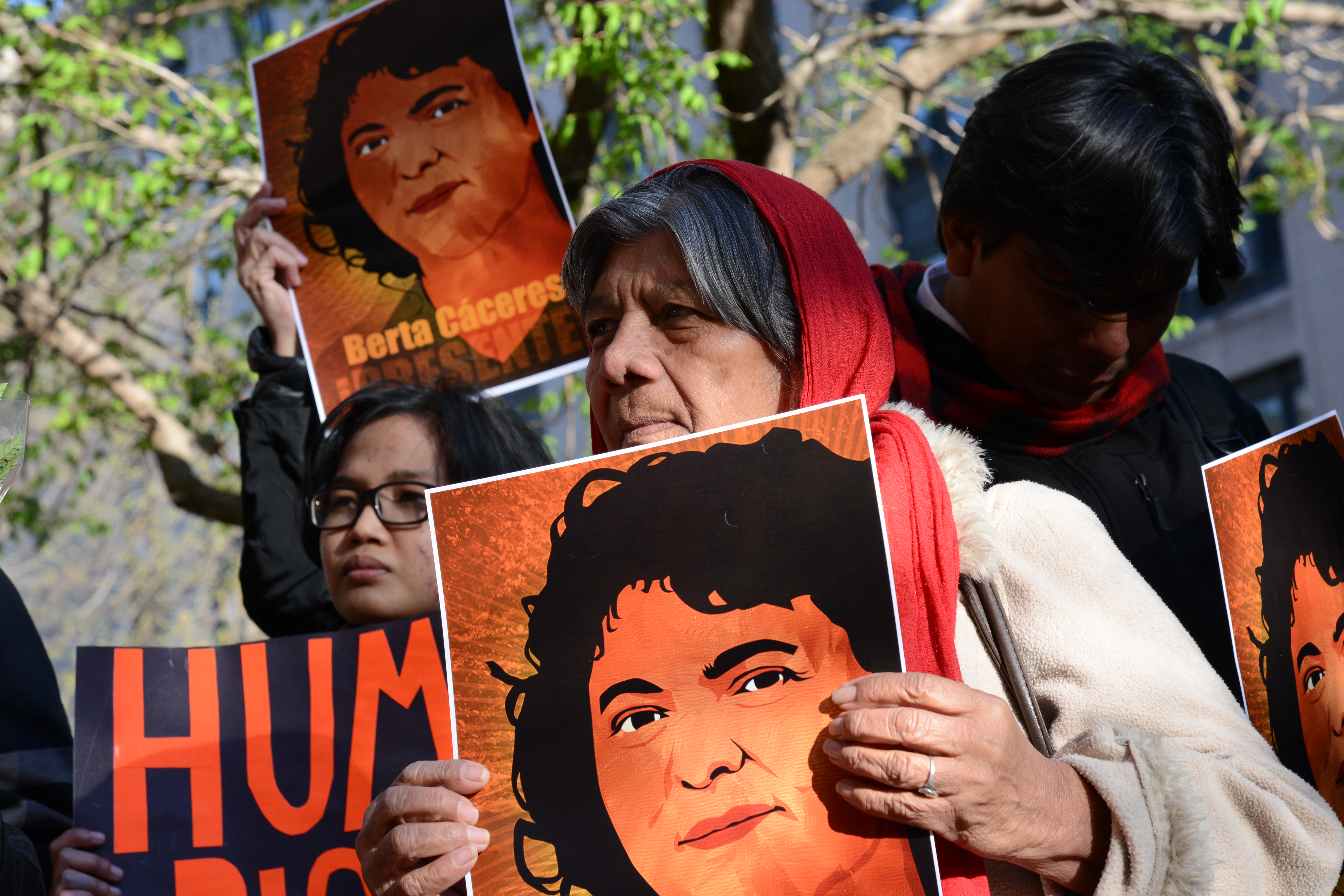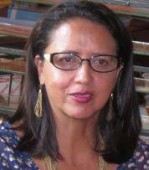Global Witness Report: Attacks, Discreditation and Trials Failed to Hide the Obvious
by Dina Meza / March 17, 2017 / No comments

A vigil was held for environmental activist, Berta Cáceres, on April 5, 2016. Image via: Daniel Cima/CIDH
The Honduran government is systematically discrediting a new report that outlines the violence committed against Honduran environmentalists. However, activists persist in demanding justice.
On January 31, 2017, the international organization Global Witness presented the report “Honduras: the Deadliest Country in the World for Environmental Activism.” Published after two years of investigations, the report’s findings shook the foundations of the state’s self-serving, state-complicit, institutionalized impunity.
According to the investigation by Global Witness, more than one hundred and twenty people have been killed since 2010. The victims were ordinary people; they opposed the construction of dams, mining, logging or agriculture on their lands. And they were murdered by State forces, security guards or hired assassins. Many others have been threatened, attacked or imprisoned, the report stated.
In their investigation, Global Witness took on four case studies: the murder of Berta Isabel Cáceres Flores—General Coordinator of The Council of Popular and Indigenous Organizations of Honduras (COPINH)—for protesting the shady interests behind the Agua Zarca Dam; Lenir Pérez’s corrupt mining operation; the massacre of Tolupán communities; the Garífuna people and the forces behind Honduras’s flagship tourism development.

- Honduras has one of the world’s highest murder rates. It is also one of the most dangerous countries to practice journalism, ranking 129th out of 180 in the 2014 World Press Freedom Index. Journalists are regularly threatened, attacked, and killed for their work. The Honduran government fails to punish those who use violence against reporters, essentially granting them impunity. This space will be dedicated to examining the lack of protection for Honduran journalists exercising their profession. Topics will include the use of state-sponsored advertising as a mechanism to reward or punish publications, and censorship and self-censorship as hindrances to democratic progress.

- Born in Cofradía, Honduras, Dina Meza has been recognized by PEN International, Amnesty International, Index on Censorship and Reporters without Borders for her work as a journalist and human rights advocate. Currently, Dina is the driving force behind the creation of Honduras PEN Centre. In 2013, she wrote “Reign of Terror,” an in-depth report on threats to Honduran journalists for Index on Censorship’s magazine. In 2014, she was named one of Reporters Without Borders’ “100 Heroes and Heroines of Information.”
In each case, the descent into violence turned those involved grey. In the report’s aftermath, the Vice President of the National Congress and his legal representative filed a complaint with the Public Ministry as the prelude to a complaint against Billy Kyte, a Global Witness campaign leader. These legal threats mirror the tactics typically used again Honduran human rights defenders as a means to scare off dissenters. Meanwhile, private companies joined in the attempts to discredit the report. The corporate media also tried to discredit the report, leading its critics to television programs. However, the report is difficult to refute because it is backed by documentation and victim testimonial.
In a country where those who defend human rights are attacked, it is complicated to try to calm the perpetrators identified in the report. A rush of state officials began with the President of the Republic himself. Other junior officials, did not hesitate to discredit the document as well—including the Environment Minister, who demanded that the Attorney General arrest Billy Kyte.
It is not incidental that the reactions threw mud at the report; the intention was that it would remain purely a report. However it is not so easy to discredit a report when there are supporting documents, which is why they have added the threat of going to trial.
Global Witness is correct in saying that Honduras is a very dangerous place to defend the planet; we have lost valuable people, defenders of the environment and the land, who, like Berta Cáceres, today lie in cemeteries. The crimes go unpunished.
It is ridiculous that high- and low-level government officials, politicians and businessmen, all ask for proof. Especially when doing a little observation they could find the remains of the crimes committed, but not the criminals who enjoy the cloak of impunity.
The report not only shook those who felt exposed, but also the human rights organizations who united to take action. Together, several organizations filed a request to the Public Prosecutor’s Office to conduct an investigation in order to punish those identified as responsible in the Global Witness investigation.
To date, there has been no response from the Public Prosecutor’s Office—they have not even taken the trouble to begin. What is certain is that responsibility now lies with the Honduran justice system, which is corroded by impunity and corruption.
The demand for justice must not stop. Increased media coverage does not mean that the social and human rights activists should sit back and do nothing. A lack of action would bury the demand for the punishment of those responsible for committing imprescriptible crimes against humanity. Activists should commit to gaining ground on impunity, challenging power, and establishing the sovereignty of citizens. Only in this way can we change the rules of the game—rules that established a system plagued by death, threats and persecution. The goal is not to stop the demands, but to persist.
We will see who wins: impunity or persistence.




